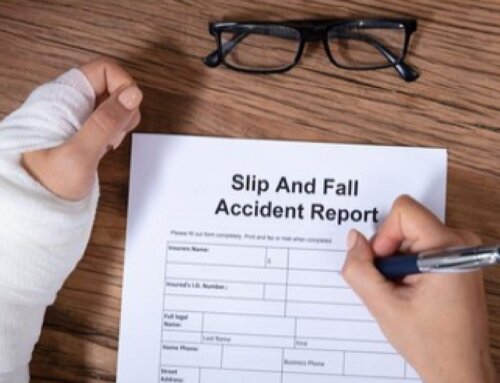The term PPE became synonymous with the heroics of front-line healthcare staff during the Covid pandemic. At the same time nurses were battling to save lives, many of them said they were being provided with inadequate PPE, and as a result, their own health was being put at risk.
As regular readers of our blogs on accident at work claims will be aware, the primary duty of care an employer owes to their employees is to provide them with a safe place pf work.
The common law duty of care is backed up in written law, by legislation, in the form of the Health and Safety at Work Act 1974 s2, ss1, which states:
“It shall be the duty of every employer to ensure, so far as is reasonably practicable, the health, safety and welfare at work of all his employees.”
Any law relating to health and safety at work aims to keep workplaces safe, promote good working practices, and ensure the safety of workers.
Adhering to health and safety law isn’t just about being a decent employer. If an employer breaches their duty of care and an employee suffers injury due to the breach, the injured worker can sue the employer by making an accident at work claim.
When this happens, both parties are adversely affected. The injured employee suffers damage to his health, takes time off work and has a loss of earnings.
The employer may face prosecution by the HSE (Health and Safety Executive) as well as having to ask his employers’ liability insurance company to deal with and in most cases, pay-out personal injury compensation to the injured worker.
Does my employer have to provide me with PPE?
Employers must ensure they do not breach their duty of care to their employees by failing to provide PPE (Personal Protective Equipment).
PPE is only to be used as a last resort if every other method of managing risk has been tried, and if the conclusion is, PPE is still required to protect the employee from coming to harm.
The Personal Protective Equipment at Work Regulations 1992 makes it a legal requirement for employers to provide their employees with suitable PPE when it is needed to protect the employees’ health and safety at work.
If required, the PPE must be provided free of charge to the employee and be the right kind of PPE i.e., suited to the job. The employer is under a duty to make sure the worker uses the PPE properly, and where necessary, they must be trained in how to use it.
Some examples of the types of PPE employers often need to provide include:
- Gloves
- Ear protectors/earplugs
- Protective clothing
- Safety helmets
- Steel toecap boots
- Respiratory Protective Equipment
The Personal Protective Equipment at Work (Amendment) Regulations 2022?
In the 1992 PPE regulations, the requirement to provide employees with PPE does not extend to casual workers or, to coin a phrase, ‘gig economy’ workers. Employees of this nature make up a large percentage of the catering and food industry alone.
On April 6th, 2022, The Personal Protective Equipment at Work (Amendment) Regulations 2022 came into force to rectify this inconsistency.
The amended regulations achieve this by defining a worker as follows:
“worker” means an individual who has entered into or works under—
(a) a contract of employment,
(b) any contract, whether express or implied and (if it is express) whether oral or in writing, whereby the individual undertakes to do or perform personally any work or services for another party to the contract whose status is not by virtue of the contract that of a client or customer of any profession or business undertaking carried on by the individual,
and any reference to a worker’s contract shall be construed accordingly.”
For many employers, this amendment will make no difference to the way they operate because they have already been treating all their employees on an equal footing and providing all of them with PPE when needed.
Where employers have not been providing workers on a contract who are not employees and casual workers with PPE, they should already have made the necessary changes in advance of April 6th. If they haven’t done so, they should attend to it immediately. HSE inspectors carry out spot checks to ensure companies comply with PPE regulations. Where they find a breach of the rules, they can prosecute offending employers.
Furthermore, if a breach of the regulations results in an employee suffering an injury because they have not been provided with PPE (or they’ve been provided with inadequate PPE), the affected employee would have grounds for bringing an employer’s liability claim against the company they work for.
Mooneerams Solicitors are accident at work solicitors. If you get injured in an accident at work caused by a failure of your employer to provide you with PPE, Mooneerams can help you make an inadequate PPE claim.
Call us now on 029 2048 3615 or fill in the box with your details on the right-hand side of this page. Click the button to send the form to us, and we will get back to you right away. Mooneerams only handle personal injury claims and only for claimants, i.e., those who want to make a claim for compensation – never for insurance companies. Mooneerams take on most accident at work compensation claims on a No Win No Fee basis.









